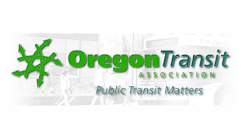Oregon Transit Association, ATU 757 introduce new bill that adds use of illegal drugs on public transit to punishable offenses under IPT
The Oregon Transit Association (OTA) and the Amalgamated Transit Union (ATU) 757 are introducing Senate Bill 1553-1, which adds the use of illicit drugs on public transit to the offenses punishable under the crime of Interfering with Public Transportation (IPT).
Under the new bill, which is sponsored by Sen. Kate Lieber (D-OR-14th District), a person using illicit drugs on a public transit vehicle or at a transit station could be charged with a Class A Misdemeanor. Senate Bill 1553-1 classifies this form of IPT as drug-designated misdemeanor, allowing individuals convicted of the crime to access state-funded treatment in many instances.
Stopping illicit drug use on public transit
The fentanyl addiction crisis in Oregon has led to unprecedented public emergency declarations and the widespread open use of illicit drugs in public spaces has extended onto the state’s public transportation systems. Illicit drug use is particularly problematic on transit.
“Transit is a vital public resource and a unique type of public space,” said OTA Board President Derek Hofbauer. “Unlike sidewalks and other open public spaces, transit riders must wait at designated transit stops and stations, making it difficult to avoid exposure to illicit drug use.”
OTA says expanding the IPT statute to cover the use of illicit drugs on transit will give law enforcement the tools necessary to keep public transit, its riders and its employees safe.
“Public transit must be a drug-free zone,” said Shirley Block, ATU 757 president. “Our union operators and transit field staff have the right to do their jobs without worrying about the unpredictable behavior of people using illicit drugs or fearing potential long-term exposure to drug fumes.”
TriMet supports the implementation of the bill. In a statement, the agency said the bill sends a clear message that transit systems in the state of Oregon are drug-free zones.
“We value the health and well-being of our riders and employees and that's why we have made several investments in our safety and security workforce and initiatives in recent years. The majority of our personnel is unarmed, by design, and trained in de-escalation, and police response is always a last resort. However, in situations where law enforcement involvement proves necessary, Senate Bill 1553-1 gives police the tools they need to help keep the rampant use of illegal drugs that is surging in our community off our system,” the statement says. “Public transit must feel safe and comfortable for everyone to use, particularly for the most vulnerable members of our community — many of whom rely on TriMet as a lifeline to jobs, schools and essential services. No one should worry about the unpredictable and potentially dangerous behavior of people who are using illicit drugs or fear exposure to fumes needles and residue. Senate Bill 1553-1 is the right balance of accountability while including a thoughtful approach to substance use disorder by making illicit drug use on transit a drug-designated misdemeanor, to give those in crisis access to state-funded treatment in many instances. TriMet is dedicated to continuously improving safety and security on board but it’s clear we cannot do it alone. That is why we have been urging state and local leaders to address drug use and addiction in the community and understand the challenges unique to transit. Senate Bill 1553-1 does just that.”

Brandon Lewis | Associate Editor
Brandon Lewis is a recent graduate of Kent State University with a bachelor’s degree in journalism. Lewis is a former freelance editorial assistant at Vehicle Service Pros in Endeavor Business Media’s Vehicle Repair Group. Lewis brings his knowledge of web managing, copyediting and SEO practices to Mass Transit Magazine as an associate editor. He is also a co-host of the Infrastructure Technology Podcast.





